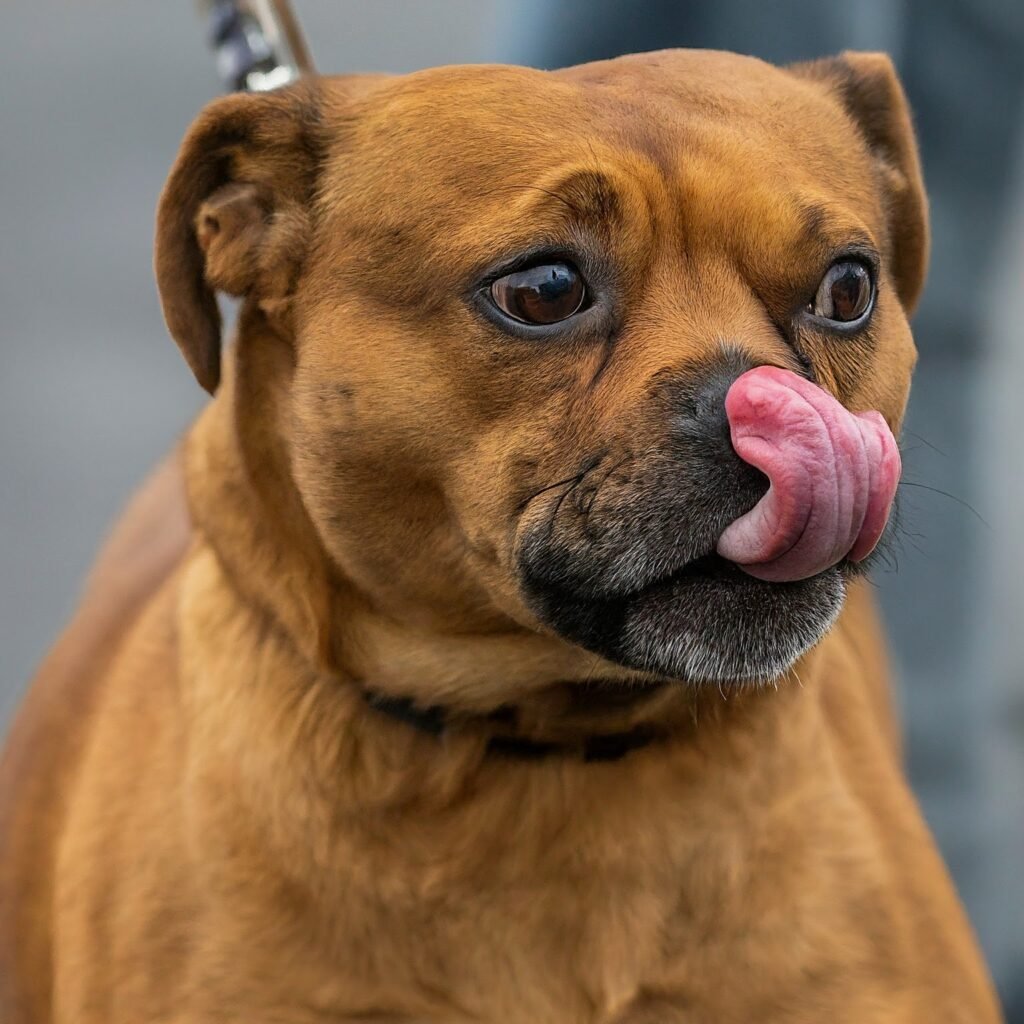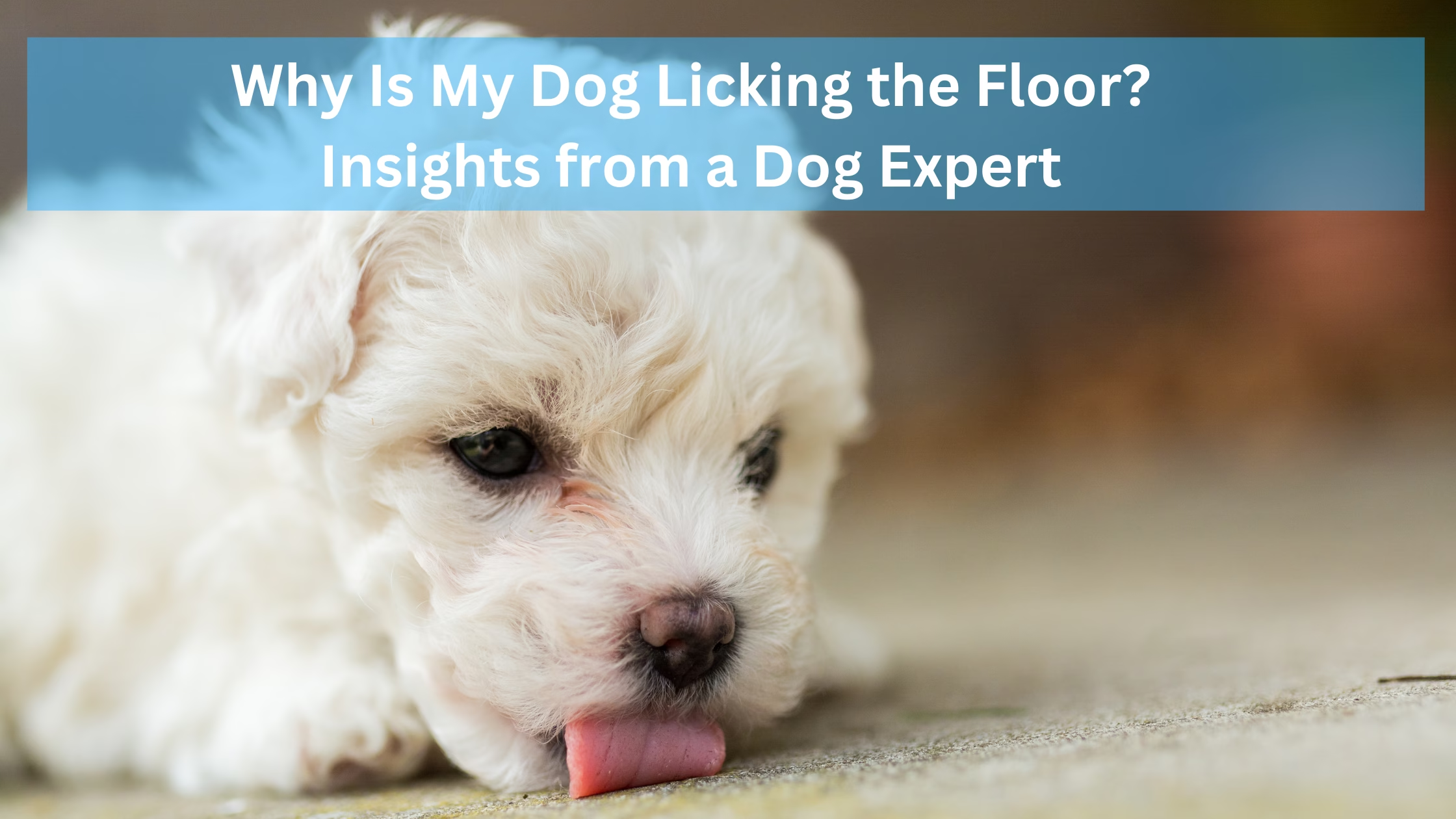As a dog owner, you might have noticed your furry friend licking the floor and wondered what could be causing this peculiar behavior. While occasional licking is generally harmless, persistent floor licking can be a sign of underlying issues. As a dog expert, I’m here to help you understand the possible reasons and what you can do about it.
Why Is My Dog Licking the Floor?

1. Exploration and Curiosity
Dogs explore the world with their noses and mouths. They may lick the floor simply because they are curious about a new or interesting smell or taste.
If your dog licks the floor occasionally and shows no other signs of distress, this behavior is likely just a part of their natural curiosity.
2. Spilled Food or Drinks
One of the most common reasons dogs lick the floor is the presence of food or drink residue.
Even if you’ve cleaned up after a spill, your dog’s keen sense of smell can detect minute particles, prompting them to lick the area.
3. Seeking Attention
Dogs often repeat behaviors that get them attention.
If licking the floor has previously resulted in interaction from you, whether positive or negative, your dog might continue to do it to garner your attention.
It’s essential to monitor your reactions and ensure you’re not inadvertently encouraging the behavior.
4. Boredom or Anxiety
Floor licking can be a sign of boredom or anxiety. Dogs need mental and physical stimulation to stay happy and healthy.
If they don’t get enough exercise or mental engagement, they might resort to behaviors like floor licking to cope with their boredom or anxiety.
Providing plenty of toys, engaging in regular playtime, and ensuring daily exercise can help alleviate these issues.
5. Gastrointestinal Issues
Persistent floor licking might indicate underlying gastrointestinal (GI) problems. Dogs with GI discomfort may lick surfaces in an attempt to soothe their stomachs.
If your dog is licking the floor frequently and exhibits other symptoms such as vomiting, diarrhea, loss of appetite, or lethargy, it’s crucial to consult your veterinarian.
6. Nutritional Deficiencies
Sometimes, dogs lick unusual surfaces due to nutritional deficiencies. If your dog’s diet lacks essential nutrients, they may lick the floor or other non-food items to compensate.
Ensuring your dog has a balanced and nutritious diet is vital. Consult your vet about the best dietary options for your dog’s specific needs.
7. Compulsive Behavior
In some cases, floor licking can become a compulsive behavior. Compulsive licking might be linked to anxiety, stress, or underlying medical conditions.
If your dog’s licking behavior is excessive and repetitive, it’s essential to seek advice from a vet or a professional animal behaviorist to determine the cause and develop a management plan.
What to Do About Floor Licking

If your dog’s floor licking is infrequent and doesn’t seem to cause any distress, it’s likely nothing to worry about. However, if the behavior is persistent, you can take several steps to address it:
- Ensure Cleanliness: Regularly clean your floors to remove any food residues or enticing smells that might attract your dog.
- Provide Enrichment: Keep your dog mentally and physically stimulated with regular exercise, interactive toys, and training sessions.
- Evaluate Diet: Ensure your dog is on a balanced diet that meets all their nutritional needs. Consult your vet for dietary advice.
- Monitor Health: Keep an eye on your dog’s overall health and behavior. If you notice any signs of illness or distress, consult your vet promptly.
- Behavioral Support: If the licking is due to anxiety or compulsion, work with a vet or a behaviorist to develop strategies to manage and reduce the behavior.
Also Read : Dog Obedience Training – The Pawsitively Perfect Training.
Also Read : When to stop fighting mast cell tumors in dog?
Also Read : Can Dogs Have Cinnamon Rolls? Safety Tips and Potential Benefits
Conclusion
Understanding why your dog licks the floor can help you address the behavior effectively.
While it may be a harmless exploration or a quest for leftovers, it can also signal deeper issues like anxiety, nutritional deficiencies, or health problems.
By observing your dog’s behavior and taking appropriate action, you can ensure your furry friend stays happy and healthy.
For more expert tips and advice on dog behavior, health, and training, follow our blog or join our community of dog lovers.
If you have specific concerns about your dog’s licking behavior, feel free to reach out to a veterinary professional for personalized guidance.







